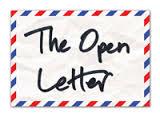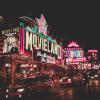Dear Friends,
I am writing because I am disturbed by the string of articles, blog entries, and list serve threads that have come out in the last few days suggesting that the high turnout of African American and Latino voters for the presidential election was responsible for the passage of California’s proposition 8, which dealt a heavy blow to LGBT families by banning gay marriage in the state’s constitution.
These articles mistakenly imply that the struggles for civil rights for LGBT people and communities of color are separate or even at odds with each other. They deny the work that LGBT people of color do to combat homophobia and transphobia in their families and communities, often while facing racism within the queer community as well. These articles deny homophobia among white people. They displace blame away from those who actually have the power to consistently deny others civil and human rights, and instead, charge that when communities that have long been disenfranchised and alienated from political processes participate, that the results with be negative for LGBT people.
I believe all communities need to be held accountable for their homophobia and transphobia. I want to acknowledge the suffering and hardship that the passage of Proposition 8 has caused for LGBT couples and families. But, while the media casts blame on communities of color for the passage of Prop 8, it is imperative that we struggle against the logic that tells us that struggles for LGBT civil rights and racial justice are separate—that we re-examine our strategies for advancing LGBT civil rights and gay marriage and, in particular, look at places where LGBT communities have failed to align our struggles for civil rights with ongoing struggles for racial justice.
Californians live in a state that has one of the highest incarceration rates in a nation with the highest incarceration rate in the world. Studies have estimated that at any time, 40 percent of black men in their 20′s in California are under the control of the correctional system. Criminalization affects many LGBT people, in particular, those that may be experiencing addiction or who, lacking familial support, move to expensive cities where they may have a hard time accessing affordable housing and legal or living-wage work. I write from San Francisco, where, in the months leading up the election, I saw a massive mobilization within the queer spaces in which I spend time to get people to vote no on 8, but I saw little or no public discourse among LGBT people about very important state propositions: 5, 6, and 9—all of which potentially impacted things like funding for prisons, drug crime sentencing, or the trying of minors as adults in this state.
In the last months, we have seen raids by Immigration and Customs Enforcement (ICE) throughout the state and in San Francisco. Many people immigrate here for work as a result of a US foreign policy that destabilizes foreign economies. Additionally, San Francisco is home to many LGBT immigrants who may have come to the country seeking safety and asylum. While my inbox was flooded with emails pertaining to Prop 8, I heard from very few queer people who were seeking to mobilize around the October 31st demonstration to protest ICE raids, other work pertaining to ICE raids, or San Francisco’s establishment as a sanctuary city.
The November ballot contained several important city initiatives that could have affected the livability of our city both for low-income people of color and for many queer people:
Proposition K, an initiative to decriminalize prostitution, would have helped sex workers in this city to make major strides in their ability to organize for their rights and safety, allowing them to better protect themselves against violence and police harassment. Despite the fact that many, many young LGBT people in this city earn their livings as sex workers and daily face risks to their safety, and that trans women working as sex workers have lost their lives while working in the city within the last two years, I saw shockingly little effort among LGBT people to educate themselves on the realities facing sex workers or the background on Proposition K—Let alone to spread any word about it.
Similarly, proposition B, which would have mandated that the city set aside part of its budget for affordable housing was defeated by SF voters. We live in a city with a history of racist schemes of redevelopment and displacement: SOMA in the 60s, Justin Herman’s redevelopment of the Fillmore, illegal evictions in the Mission in the 90s, contemporary cuts to county welfare, and most recently, the gentrification of the Bayview—to name a few examples. And yet, San Francisco voters have failed to stand up for working families’ ability to live affordably in this city—a city where remaining working class communities of color face major threats of displacement.
Despite the fact that white LGBT people often play complicated roles in the gentrification of the city and displacement of communities of color, I saw no media reports released on November 5th scrutinizing the voting trends of white LGBT San Franciscans on Propositions B, N, K, 5, 6, or 9, as juxtaposed to the numerous articles scrutinizing the voting habits of Black and Latino voters on Prop 8. And despite the overwhelmingly negative outcome of several important local and state propositions, outcry among the wider LGBT community seems to have been reserved solely for the passage of Proposition 8.
As a young, queer woman living in San Francisco, I feel very strongly that affordability is vital to the creativity and well being of the city’s LGBT community. And as a white person living in the Mission, I have to think and act critically in regards to the complicated role I play in the gentrification of this neighborhood and the larger schemes of displacement within this city. I love my queer life and love living in this city. I get to witness the ways of living and congregating, making new families, new cultures, and envisioning new worlds that are possible living around so many other brilliant and creative queer people. While I would like to lend my support and compassion to people who lost the right to marry this week, I also question the logic that tells me that my only struggle as an LGBT person centers around my right to marry. While I sign petitions to support marriage as a civil right, I would like to see LGBT Californians take a serious look at the fact that housing, healthcare, employment, and freedom from police harassment and incarceration are also civil and human rights.
I would like to see LGBT Californians talk not only about how marriage rights could affect their ability to receive their partners’ health benefits, but about universal healthcare. I would like to hear us talk not just about how a lack of marriage rights separates couples where one member lacks citizenship, but connect this to struggles for immigrant rights. I would like to hear LGBT people not only talk about how their families are discriminated against, but link their struggles to those of the many California families where children are being raised by people other than their parents due to the mass incarceration of parents with children.
The passing of Proposition 8 is a sad day and indicative of the work that lies ahead. As we heal from these blows, I would like to challenge us to consider how our struggles are bound up with struggles for racial and economic justice, and how our fight for civil rights, and the health of our communities could be strengthened by taking these connections more seriously. Above all, I would like to challenge us to resist racist media schemes that, during our moment of need and an even greater moment of possibility, are attempting to pit LGBT people and their supporters against communities of color in California.
I apologize for the hasty construction of this, but time is of the essence. I welcome your thoughts.
In struggle,
Adele Carpenter
















